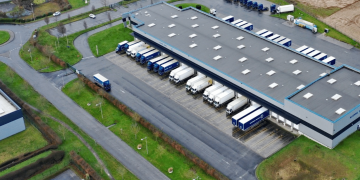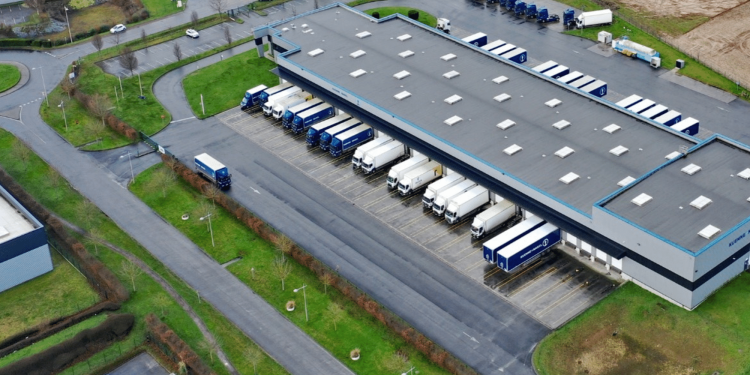By Eva Richardson | The Logistic News
April 11, 2025
As e-commerce continues to reshape the retail and logistics landscape across Europe, H.I.G. Realty has taken a decisive step by expanding its footprint in France’s high-demand last-mile logistics sector. The U.S.-based private equity firm announced the acquisition of a diversified urban logistics portfolio, signaling strong conviction in the future of hyper-local delivery infrastructure.
This move not only reinforces H.I.G. Realty’s strategic position in one of Europe’s most competitive logistics markets, but also highlights the escalating demand for urban distribution hubs capable of meeting rapid delivery expectations.
Local Reach, Global Impact: Why France?
France, particularly cities like Paris, Lyon, Lille, and Marseille, has emerged as a key battleground for last-mile logistics due to its dense population centers, rising e-commerce penetration, and regulatory focus on emissions reduction. H.I.G.’s newly acquired assets span multiple strategic locations, enabling rapid access to urban cores while meeting modern supply chain demands.
“The French market represents a critical node in the European logistics network,” said a spokesperson for H.I.G. Realty. “With this acquisition, we are not only growing our asset base—we are building a scalable logistics platform tailored for next-generation delivery models.”
The E-Commerce Effect and Urban Infrastructure Pressure
France’s e-commerce market has grown by over 13% annually since 2020, pushing traditional logistics models to their limits. Last-mile fulfillment—once viewed as a cost center—is now a strategic differentiator for retailers. As consumers expect same-day or even one-hour delivery, demand for proximity logistics space has skyrocketed.
But with limited land availability and growing environmental restrictions in urban areas, high-functioning, well-located logistics assets are now considered premium infrastructure.
“Last-mile logistics isn’t just about warehousing anymore—it’s about real-time responsiveness, carbon efficiency, and integrated tech,” said Sophie Drouet, a logistics consultant based in Paris. “Investors like H.I.G. understand that future-proofing logistics means being close to the customer—physically and digitally.”
Sustainability at the Core of Urban Logistics Strategy
H.I.G. Realty’s investment also carries a strong ESG narrative. The firm has outlined plans to retrofit many of its newly acquired facilities with green roofs, solar energy systems, and electric vehicle charging infrastructure for delivery fleets.
Several of the assets are expected to target BREEAM and HQE certifications, reinforcing the dual goal of logistical performance and environmental stewardship.
“Urban logistics must evolve not just for speed but for sustainability,” said Eva Brunel, Head of ESG Operations at H.I.G.’s European division. “Our role is to facilitate both.”
The Road Ahead: Growing Competition, Strategic Consolidation
With this latest acquisition, H.I.G. joins a growing list of global investors—including Blackstone, GLP, and Prologis—actively consolidating their hold over Europe’s urban logistics corridors. Analysts expect continued capital flow into the segment as the ‘delivery promise’ becomes central to brand loyalty and retail competitiveness.
H.I.G. Realty’s strategy focuses not only on real estate acquisition, but also on operational partnerships with 3PLs and e-commerce platforms, a model that aligns logistics infrastructure with the real-time needs of digital retail.
Why It Matters:
As France gears up for a new era of urban mobility, electrified fleets, and low-emission zones, last-mile logistics real estate will play a pivotal role in connecting products to people. For H.I.G. Realty, this acquisition is more than a property play—it’s a long-term bet on the urbanization of commerce.
Eva Richardson is a senior correspondent for The Logistic News, specializing in investment strategy, logistics real estate, and supply chain innovation across Europe and North America.























